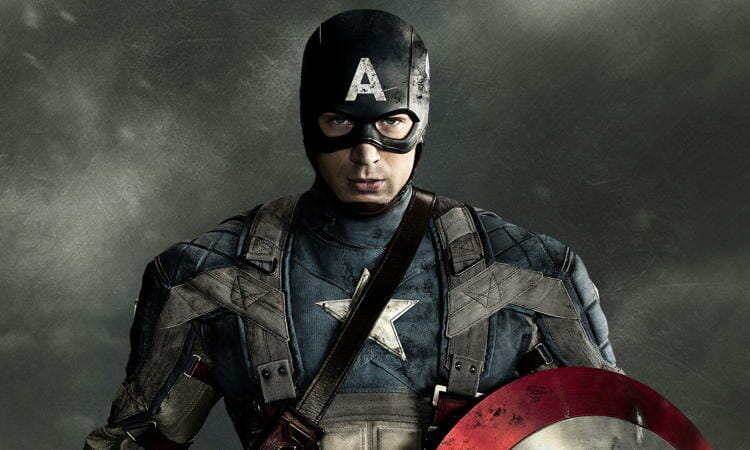By Nguyen Le · April 6, 2014

Apparently New York is child’s play when you’re about to face an enemy with matching skills and discover a S.H.I.E.L.D-shattering secret. Also apparent is how good Captain America’s second solo outing is – it entertains here, surprises there, and on the whole a clear improvement over 2011’s The First Avenger.
The familiar faces – Evans, Johansson and Jackson – are now more comfortable in their hero shoes as Cap, Black Widow and director Nick Fury, respectively. The test now is to see how well they interact with one another and the three pass with flying colors. Perhaps it’s because, despite the difference in powers and abilities, they all go through similar things in the film – having their allegiance questioned, being deceived and coming this close to death. Introducing a ‘gray zone’, albeit small, make these characters more interesting for they step out of the clear-cut “here’s the good people/bad people” mold of comic book adaptations. As a result, they – and you as well – will have to do a little bit of thinking: maybe our protagonists aren’t all that perfect and there’s no conspicuous Red Skull declaring “I’m evil” to be found.
Speaking of Red Skull, this time around the man who’ll give our heroes a hard time isn’t ailed with underwritten syndrome. Veteran actor Robert Redford (All is Lost and Lions for Lambs) is threatening as Secretary Alexander Pierce, thanks to an insidiousness permeating his mindset, mannerisms and diction. Always a welcoming presence on-screen, Redford raises stakes, gravitas and legitimate suspense. More or less he is the key to the film’s success, turning a superhero film into, in producer Kevin Feige’s words, “a 1970s political thriller”. He forgot to add ‘good’ after the ‘a’.
Much credit should be given to writers Christopher Markus and Stephen McFeely (The Chronicles of Narnia and Pain and Gain) for this surprise approach. Having been liberated from an “origin story” setup, the plot progresses more smoothly, possesses more complexity, the pacing is tighter – especially the middle act – and a couple of “oh wow” moments resulting from really natural weaving of characters and major plot points from the first film. Focusing on the themes of trust and secrecy is great because besides catching up with the times, Captain America has to deal with the change in ideology about peace, control and measures to carry them out. Topical and timely – now that’s a rarity in a Marvel film, or a superhero film for that matter.
Some characters are rather one-dimensional, however, including agent Brock Rumlow (Homefront and Disconnect’s Frank Grillo), Captain America’s friend The Falcon (The Adjustment Bureau and Pain and Gain’s Anthony Mackie) and, yes, even the main-billed Winter Soldier (Rachel Getting Married and ABC’s Once Upon a Time’s Sebastian Stan) but for the last two I’m sure they’ll be more important later on in the franchise. Still, since Markus and McFeely have already dealt the crucial plot-related cards, the latter is a forgiving weakness.
Despite my dislike with the pacing of The First Avenger, I adore the overall production because it exudes that irresistible classic sci-fi/spy film atmosphere. Now that Cap has moved to the present, it seems fitting to bring the modern touch into certain elements. Cue director of photography Trent Opaloch, whose camera movements and placements seen in District 9 and Elysium provide the film distinct grittiness and dynamic unseen in previous Marvel films. If Shelley Johnson’s work in The First Avenger is The Bourne Identity, Opaloch’s approach to The Winter Soldier is definitely The Bourne Ultimatum. Substituting for old-fashioned and lively marching band music from Alan Silverstri is the brooding and fast-paced electronic compositions from Henry Jackman (X-Men First Class and Wreck-It-Ralph), which is most affecting when the Winter Soldier is on-screen. On the whole though, the most impressive aspect here is realizing the switch from retro to present day works on both a technical and thematic level.
Long story short, The Winter Soldier isn’t only a welcoming addition to the Marvel Cinematic Universe but is the best entry yet. After the fun but flat Thor: The Dark World, this is a necessary burst of energy and now I can’t help but be optimistic at where Captain America, and in the bigger picture Marvel Studios, will go (maybe two post-credits scenes can provide hints?). Truly an armor upgraded.